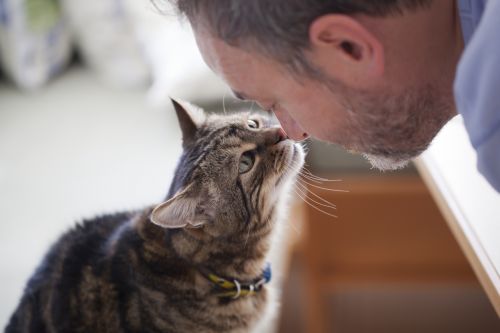All Dogs Go to Heaven—But What if You Go First? (A Guide to Estate Planning for Pets)

People without pets might scoff, but those of us who love a dog, cat, or other critter know: pets are a member of the family. For some, pets are "fur children" who grew up with their human offspring. For others, pets provide companionship in an otherwise empty house after children have moved away and a spouse has passed on. Whatever your circumstances, you may have worried what would happen to your pet if anything happened to you. If so, you're not alone: so many people are concerned about their pet's futures if they themselves should die first that many states have helped put legal protections in place to allow for estate planning for pets. (To be clear, that's estate planning for your pet's benefit, not deciding who will inherit their ratty blanket and chewed-up rawhide.)
How you will include your pet in your estate plan depends on your situation. Some people authorize a specific person to take possession of their pet until a permanent home can be found. Often there is a cash payment attached, to both provide for the pet's needs and to compensate the temporary caretaker for their time and effort. Others create a pet trust to provide ongoing care for their furry loved one. We have even helped a client who had over a dozen pets create a trust complete with detailed information on each animal and their respective preferences. Even a simple plan will ensure your pet’s security, but you can certainly get more elaborate in your planning if you like.
Why Create a Pet Trust?
People who include their pets in their estate plans don't want to leave the well-being of their pets to chance. Most of us have seen posts on social media in which a friend pleads for someone to take an animal that was left behind when a family member died or moved into a nursing home. If it breaks your heart to think of your furry pal being sent to a shelter because a home couldn't be found for him or her, consider making a plan for your pet.
Don't assume that "someone" will take your pet if you are no longer around to care for him or her. Family members may love to see your pet when they visit, but permanently caring for a pet, especially an aging one with health problems, is a big commitment. Knowing that they will have help paying for your pet's expenses may make an otherwise-hesitant friend or family member more willing to commit to caring for your pet.
Just as you wouldn't leave your baby on the doorstep of a family member with a note, don't spring the "guardianship" of your pet on your caretaker of choice. Speak to them first, ask if they would be willing to care for your animal, and let them know what would be involved, including any health issues. Let them know you will be providing a stipend to help pay for your pet's care. If they agree to be named as your pet's caretaker, ask them to let you know if they change their mind at any point.
New Mexico Pet Trusts and Planning
New Mexico law specifically authorizes pet trusts, and has for several years; this is neither an uncommon issue or a new one. A New Mexico pet trust must be for the care of an animal or animals that were alive during the lifetime of the person creating the trust (the settlor). The trust terminates on the death of the last surviving animal provided for in the trust.
A pet trust authorized by §46A-4-408 of the New Mexico statutes can be enforced by a person appointed by the trust. If the trust does not appoint someone to administer the trust, the court may do so. If there is a person who has an interest in an animal’s welfare, that person may ask the court to appoint someone to enforce the trust, or to remove a person who has been appointed for that purpose.
Property held in a New Mexico pet trust can only be used for its intended purpose. If the court determines that the value of trust assets is more than needed for the trust’s intended use, the excess property must be distributed to the settlor. If the settlor is no longer alive, those assets would go to his or her successors in interest.
Creating a pet trust is a simple measure that can give you the peace of mind that your furry friends will be well-cared for in the event you can’t be there to take care of them. An experienced New Mexico estate planning attorney can help. If you are interested in adding a pet trust to your estate plan, we invite you to contact our law office to set up a consultation. You may even get to meet our pet, too!





